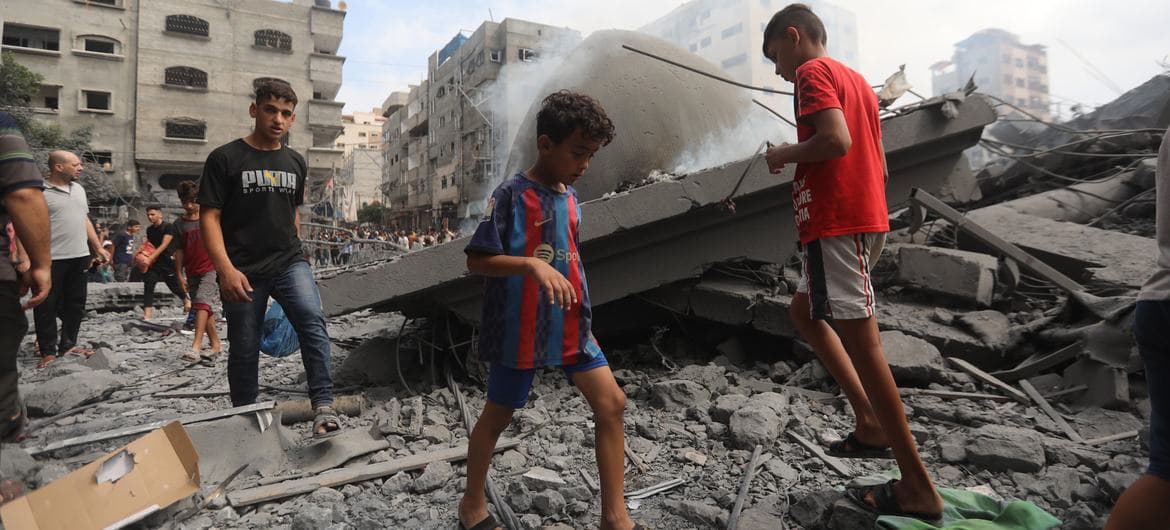Gaza Conflict Deepens Amidst Humanitarian Catastrophe and Enduring Ideological Divides

The ongoing conflict in Gaza continues to exact a devastating humanitarian toll, with over 61,000 Palestinians killed and more than 154,000 injured since October 7, 2023, according to the Gaza Ministry of Health and UN OCHA reports. The severe crisis, marked by widespread displacement, critical food shortages, and a collapsing healthcare system, persists amidst deeply entrenched religious and political narratives surrounding the land and its future.
The conflict, rooted in historical claims and national aspirations, is increasingly framed through religious lenses by various factions. Social media commentary reflects the intensity of these perspectives. For instance, a recent tweet by Ryan Landay highlighted the profound religious and political significance the Gaza war holds for many, stating, > "The Gaza war has a great deal of religious and political significance to many people who are convinced that they can accomplish some completely unrelated thing like making everyone gay if they get the outcome they want. Sucks for the people living in that part of the world." This sentiment underscores the diverse and sometimes extreme interpretations individuals attach to the conflict's outcomes.
Humanitarian organizations report a dire situation on the ground. Over 1.9 million Palestinians, approximately 90% of Gaza's population, are displaced, many multiple times, seeking refuge in overcrowded shelters or makeshift encampments. Food insecurity is rampant, with nearly half a million people facing famine-like conditions. The World Food Programme (WFP) warns that starvation is spreading, with children particularly vulnerable, and reports of deaths due to malnutrition are increasing.
The healthcare system is on the brink of collapse, with most hospitals non-functional or severely damaged, lacking essential medical supplies, fuel, and staff. Infectious diseases like acute watery diarrhea and meningitis are on the rise due to poor sanitation and limited access to clean water. Aid delivery is severely hampered by Israeli restrictions on entry, ongoing hostilities, and internal distribution challenges, including looting and attacks on convoys. The UN and numerous NGOs, including UNRWA and the IRC, are struggling to provide life-saving assistance amidst these obstacles.
Experts and scholars emphasize that while religious elements are significant, particularly in the rhetoric used by groups like Hamas and some Israeli right-wing politicians, the core of the Israeli-Palestinian conflict remains a struggle over land, self-determination, and national identity. Religious concepts are often invoked to mobilize support and justify actions, with both sides claiming historical and divine rights to the same territory. This ideological entrenchment further complicates efforts toward a peaceful resolution.
Despite international calls for a ceasefire and increased humanitarian access, political solutions remain elusive. The profound human suffering in Gaza highlights the urgent need for sustained diplomatic efforts to address the underlying causes of the conflict and ensure the protection and well-being of all civilians.